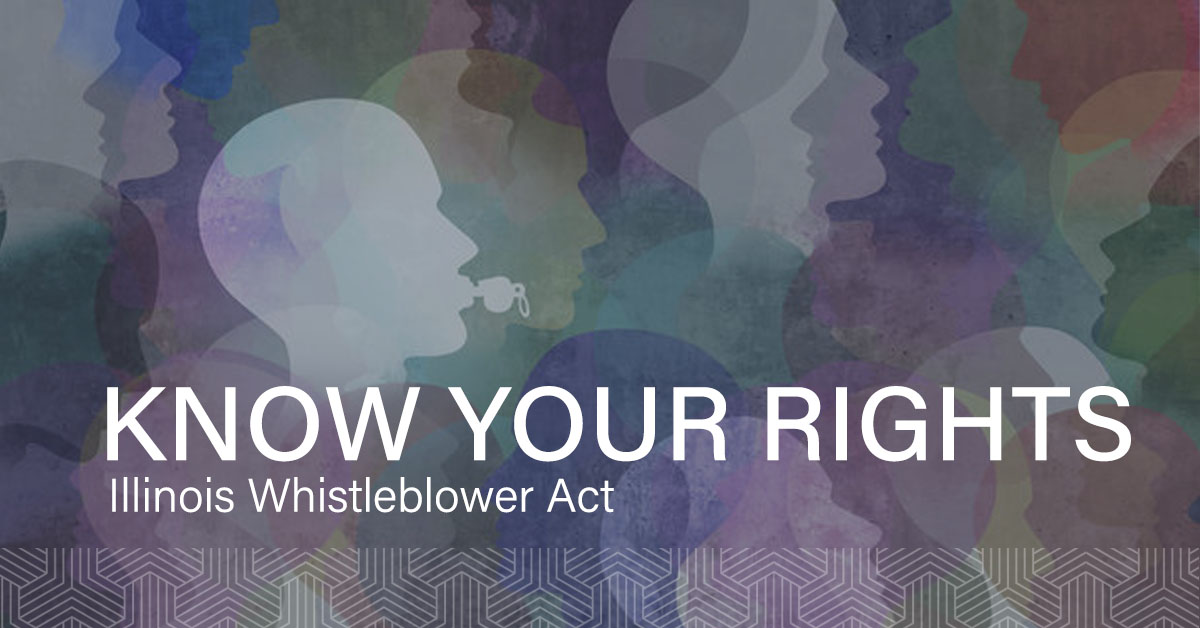A whistleblower in Illinois is someone who informs the authorities about an employer’s illegal or unauthorized activity. Illinois is an “at will” employment state. This means an employee can be fired for any reason or no reason at all as long as the termination is not discrimination or in violation of legal protections, like filing workers compensation, or statutory rights, like those provided by the Illinois Whistleblower Act. Employers are prohibited from retaliating against whistleblowers.
How are you protected under the Illinois Whistleblower Act?
Under the Illinois’ Whistleblower Act, employees are protected in three ways:
- An employee may not be retaliated against for disclosing suspected violations of state or federal law to a government or law enforcement agency. The suspicion does not need to be true. The employee only needs reasonable cause to believe it to be true. Further, the employee is not required to prove that the violation happened in order to be protected by the Act.
- An employee may not be retaliated against for refusing to participate in an activity that violates state or federal law.
- Employers cannot adopt policies that prevent employees from disclosing suspected violations of state or federal law to a government or law enforcement agency.
What kind of relief is available for whistleblowers in the Courts?
If an employer takes action against a whistleblower, the employee may file a lawsuit against the employer. The following types of relief are available:
- Reinstatement to their position with the same seniority status that the employee had or would have had if their rights had not been violated;
- Back pay plus interest; and/or
- Payment for any money damages that the employee due to the violation of their rights. These costs may include: litigation costs, expert witness fees, and attorney’s fees.
Additional types of relief maybe be applicable, depending on the specific facts of the employees claims.
Anyone who may have been fired in violation of the Illinois Whistleblower Act, should contact an experienced employment attorney to review the potential claims as soon a possible. Statutes of limitations may affect your ability to file a claim.
Authored by: Karen Munoz, Partner
